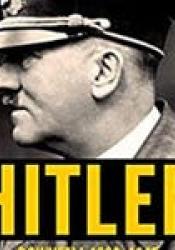Hitler's Rise to Power (1933)
“There is still no single acceptable or convincing explanation of the rise of Nazism to preponderant power in Germany and Europe” (Conway 399).
During late January of 1933, a man of great hatred and ambition came to power after appointing himself chancellor of Germany, thus delivering a swift blow to democracy and the Weimar Republic. It was with the power of many he was able to achieve this feat, as he not only worked hard to maintain a proper and professional appearance, even using his own personal photographer and his biographer to make him look like a strong social and political figure (Hett 41). Hitler wasted no time when it came to achieving his goals of human “purification”, as within the first year of being chancellor, political rights were stripped from the Jewish people and gave them minimal power to fight against their ultimate oppressor. The only thing they were able to do was to fight domestically against discrimination (Weiss 216). Many Jews of Poland would boycott German products in order to make an impact, which dropped immeasurable value to German products overall (Weiss 219). Another big part of Hitler’s rise to power was his use of cinema propaganda (something he actually has in common with Stalin) in order to try and relay his message on an international scale. Hitler himself wrote that using the cinema industry in order to spread his power was even more impactful than any written propaganda could ever do (Ross). Hitler used both the cinema and written propaganda in order to spread the word about his ideas, which increased even more so as the year went on and World War II began.
Conway, John S. "‘Machtergreifung’or ‘Due Process of History’: The Historiography of Hitler's Rise to Power." The Historical Journal 8.3 (1965): 399-413.
Hett, Benjamin Carter. The Death of Democracy: Hitler's Rise to Power and the Downfall of the Weimar Republic. Henry Holt and Company, 2018.
Weiss, Yfaat. "Polish and German Jews Between Hitler's Rise to Power and the Outbreak of the Second World War." The Leo Baeck Institute Year Book 44.1 (1999): 205-223.
Ross, Steven J. Hitler in Los Angeles: How Jews Foiled Nazi Plots Against Hollywood and America. Bloomsbury Publishing USA, 2017.

